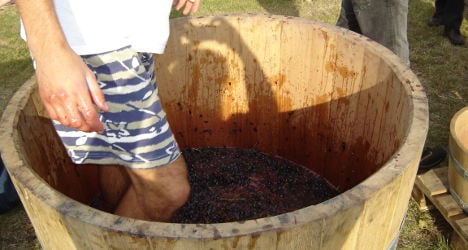Are you curious about a move to France, but unsure where your skills and experience are needed? Are you about to graduate from university, and considering a working summer? Or do you already live in France but think it’s time to change paths?
Whatever your career level, and whether you’re a veteran with an established career, or looking for an adventure as a seasonal worker, it’s always essential to know which sectors and industries are hiring, and who is hiring the most.
One company looking to make a splash on the jobs market in 2013, for example is McDonald's. The American fast food giant announced last week that it planned to create a whopping 43,000 positions.
If flipping burgers doesn't sound like fun to you, though, thankfully The Local can offer you a breakdown of everything you need to know about what jobs are in demand, and where to focus your job search in the coming months, using current data from France’s national employment agency, Pole Emploi.
CLICK HERE FOR TEN TIPS ON FINDING WORK IN FRANCE
Science, research and development
The year 2013 is remains a good time for English-speakers to find work in France’s engineering, scientific and R & D sectors, according to Dr. Vincent Mignotte, director of ABG Intelli’agence, a Paris-based recruitment agency for qualified, highly-skilled scientists.
“There is a particularly big demand here in the engineering, informatics and electronics sectors, especially among smaller companies, but also among large, international companies like Michelin, Total and Saint-Gobain, and the demand is increasing,” Mignotte told The Local.
Furthermore, English-speaking physicists, engineers, and chemists, for example, have a big advantage in France, according to Mignotte.
“In the hard sciences, all the research and literature is in English, and in a typical R & D centre, English is the main language used, especially in multinational companies.”
While learning French is something that will ultimately be necessary, Mignotte says it would be quite possible for an Anglophone scientist to start work and then learn the language.
For all your scientific career needs, go to the English version of the ABG Intelli’agence website.
CLICK HERE FOR TEN TIPS ON WRITING THE PERFECT FRENCH CV
Getting your hands dirty
One area of the French economy that is crying out for extra pairs of hands is the wine-growing and farming sector. If you fancy working on your tan and working up a sweat, picking grapes and other fruit is a very easy gig to get, but can be tough, physical work.
The pay isn’t high by any means, and if you’ve come to France without a permit – something The Local does not recommend – watch out for unscrupulous employers who’ll pay you below minimum wage.
According to Pole Emploi, between the wine and farm industries, there are over 150,000 jobs out there this year, though most will be short-term, and focused around the grape harvest in early August. Here is an online resource for finding agricultural and viticultural jobs in France this summer. http://anefa.org/
CLICK HERE FOR TEN TIPS ON FRENCH BUSINESS ETIQUETTE
Hospitality
Two sectors featuring in the top ten of this year’s list are the restaurant/café business, and the hotel industry, which are looking to hire a total of just under 100,000 workers.
The large majority of these jobs are seasonal only, so unless you already have a foot in the door in a French hostelry or restaurant, these positions might be better suited to temporary summer workers.
A summer job in a French café might seem like the perfect arrangement, but be aware that your level of French should be quite high, in order to recite wine lists, remember orders, and placate grumpy customers. Otherwise, it might be better to do a stint as a dishwasher while quickly getting your language skills up to scratch.
If you're interested in bringing your skills and experience to a French hotel, try this top level recruitment agency.
The 15 most sought-after workers this year.
1. Wine and fruit growers and pickers – 92,682 openings
2. Maintenance technicians (including nursery assistants) – 76,723 openings
3. Restaurant and café servers (including commis waiters) – 66,446 openings
4. Social and cultural activities leader – 64,369 openings
5. Multi-skilled assistants, trainees and food workers – 63,769 openings
6. Farm workers – 61,883 openings
7. Domestic carers and in-home helpers – 54,311 openings
8. Care-givers (psychiatric, medical, childcare) – 40,776 openings
9. Retail staff (Apparel, luxury and sporting goods) – 30,326 openings
10. Hotel staff – 29,970 openings
11. Cooks –29,558 openings
12. Check-out assistants – 27,638 openings
13. Engineers, research and development managers – 26,665 openings
14. Unqualified packing and warehouse workers – 26,571 openings
15. Artists (musicians, dancers, teachers) – 26,507 openings



 Please whitelist us to continue reading.
Please whitelist us to continue reading.
Member comments